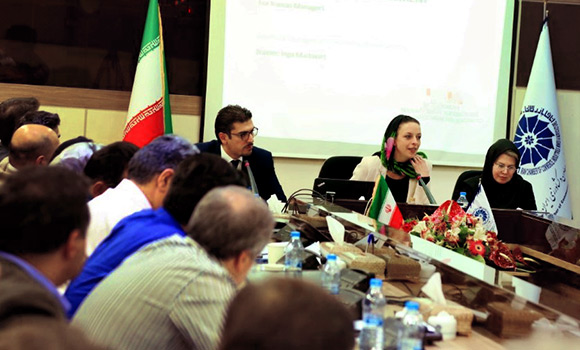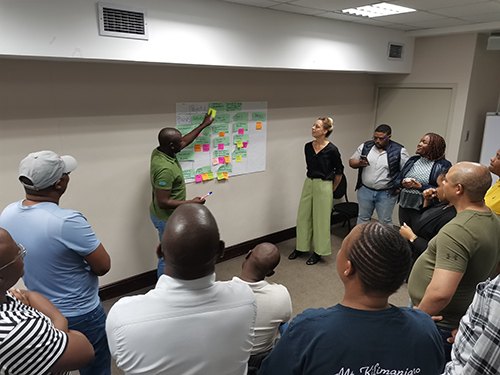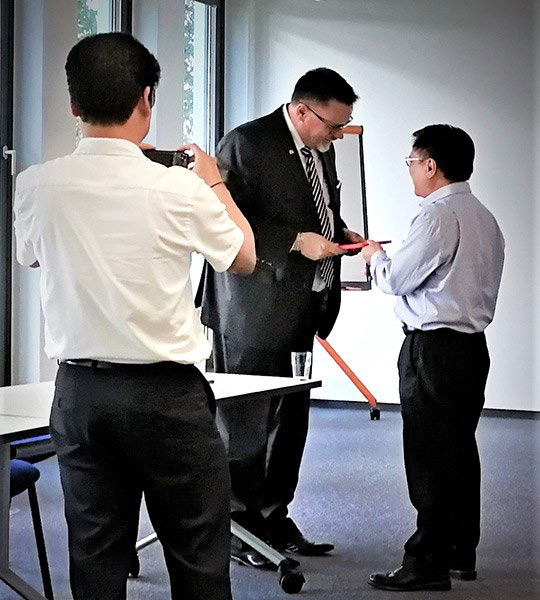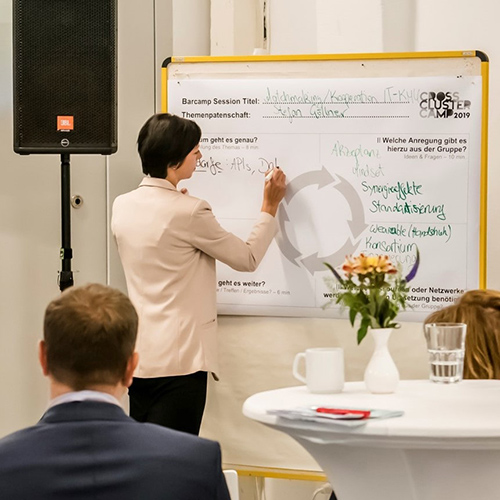I design my trainings and workshops for executives on the basis of my experience in consulting companies from various industries, in Germany and worldwide. This is why the trainings not only provide you with state-of-the-art management skills, but also with best and bad practice examples from business practice. Interactive design of trainings is particularly important to me, as experience has shown that this leads to the greatest increase of knowledge. Evaluation of training needs in advance as well as comprehensive documentation and follow-up are a core part of each training.

Innovation and change management
In a constantly changing world, the ability to innovate decides who wins and who loses in crises. Flexibility, creativity and the openness to try new things are required. The task of managers is to establish processes and conditions that promote the development of innovation and change. In a training or workshop, we analyze your target groups to understand what (further) added value you can offer. We look at the processes to be renewed in your organization and identify the roles of your responsible employees to involve them in the change process, right from the beginning. I will give you practical examples of successful service, product and process innovations and we will discuss which prerequisites are necessary for the change. Combined with advice on your business model and on options for innovation funding, you are well prepared to drive your change and innovation.

Leadership and communication
Today more than ever, managers are required to balance volatility of the environment, to create conditions for sustainable organizations and to motivate their experts for change and innovation. But how do you establish this transformative leadership style and how do you reconcile it with your personality? Leaders are often not born as such and transformative leadership can be learned. In a training or workshop, we analyze your personal leadership style, including strengths and weaknesses. I will show you methods of communication and conflict resolution that you can also use to lead intercultural teams – because intercultural leadership is a challenge, even for experienced leaders. We also discuss the challenge of virtual leadership, which today is actual for most organizations. I conceptualize the trainings on my long-years work experience with established companies and start-ups, which can learn a lot from each other.

Intercultural competence and negotiations
Intercultural competence is undoubtedly an important prerequisite for successful international business and for leading intercultural teams. Experience shows that even large projects with lavish capital resources fail due to misunderstandings that can be traced back to intercultural differences. Being interculturally competent not only means knowing the customs of another culture, but also being aware of one’s own culture-inherent values and needs. In interactive training sessions, you will learn to identify your own cultural values and to understand the norms, values and ways of thinking of the target culture. We work on real case studies and critical incidents. The input is based on the industry and the target group of your company, because there are major differences within a culture.

Project management and digitalization
Digital tools can immensely facilitate project management and solving of tasks in teams – especially if international experts work together from different locations. But the huge range of digital tools for project management can be overwhelming and the introduction of tools for digital internal and external communication or project management, e. g. based on the Kanban principle, brings with it some stumbling blocks. Without a process analysis and open communication of the change process, you run the risk of generating defensive reactions among employees and causing duplication of work. Therefore, in the first step, I analyze the relevant process with the help of interviews or focus groups with your experts and then work out suggestions for process digitization, which we then discuss in a joint workshop.
